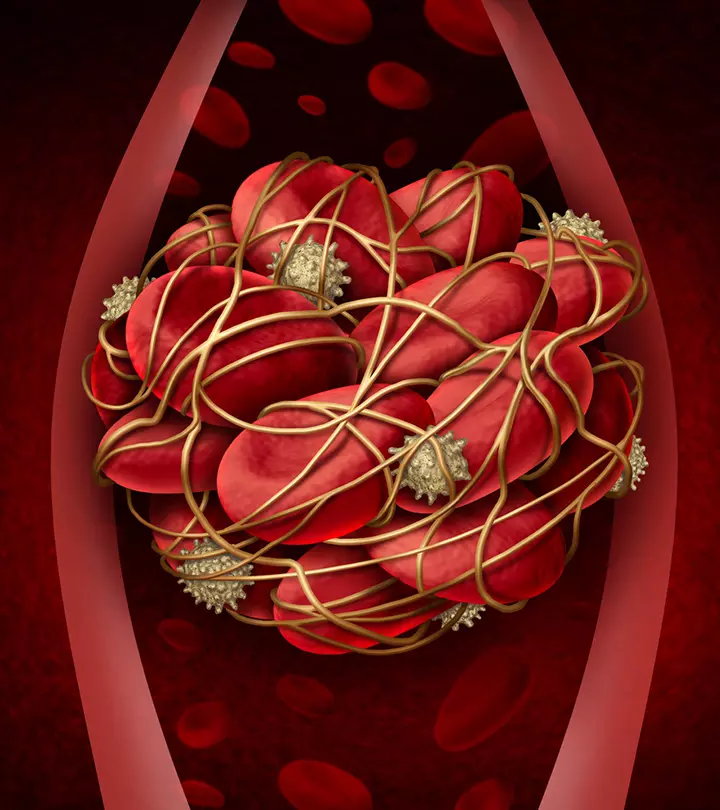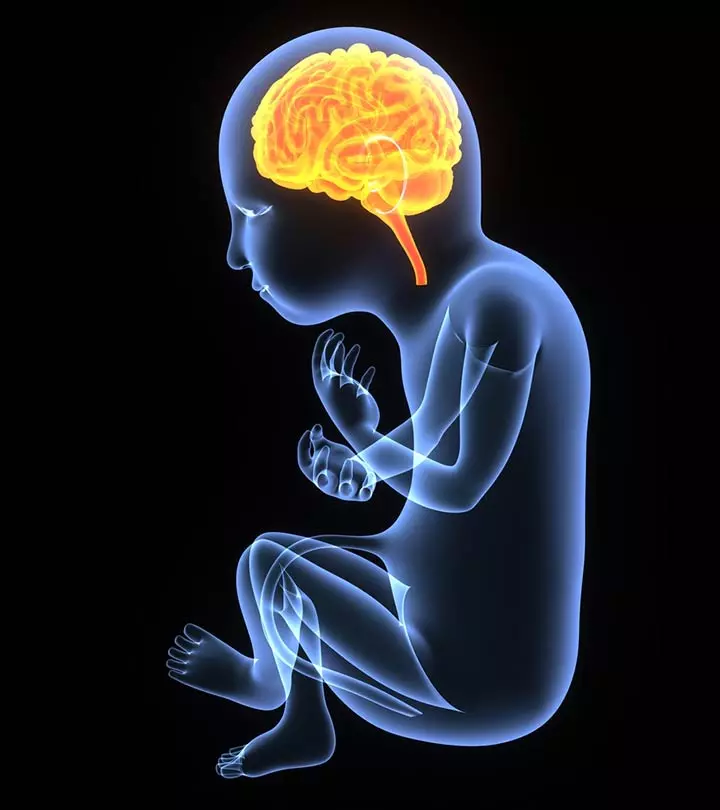

Image: Shutterstock
Back-to-back miscarriages can leave you devasted. But do not lose hope since you can find many useful tips to plan a successful pregnancy after two miscarriages.
The risks of miscarriage varies depending on the maternal age (1). But there is also a good chance of conceiving again (2). So if you have experienced a miscarriage, allow yourself time to heal mentally and physically. Also, reach out to your ob/gyn, who can conduct tests to determine the cause for the loss and prepare you for a healthy pregnancy in the future.
This post lets you in on some effective tips to prepare for a safe pregnancy after multiple miscarriages, including how to go through it strongly.
Causes Of Miscarriage
Miscarriage is a natural death of the embryo before the 20th week of pregnancy. According to research, about 10 to 20% of pregnancies end in miscarriage. Chromosomal abnormality in the developing embryo is the most common cause of miscarriage. Health conditions like uncontrolled diabetes or problems with the cervix or uterus can also cause miscarriage (3).
Miscarriage usually occurs once, and most women easily conceive after it. The likelihood of having recurrent miscarriages is low. According to American College of Obstetricians and Gynecologists, around 5% women have two or more consecutive miscarriages, and only 1% women have three or more consecutive miscarriages. It means that there is a good chance of women carrying another pregnancy to term. After three miscarriages, there are 60% to 80% chances of having a healthy pregnancy (4).
Tips To Plan A Successful Pregnancy After Two Miscarriages
1. Give Yourself Some Time:
A miscarriage can cause an intense feeling of loss. You will suffer from a wide range of negative emotions like sadness, anger, and guilt. Wait for at least a month or two menstrual cycles before trying. It will also give you time to recover both physically and emotionally. You may need to wait a little longer if you have had a late miscarriage. The World Health Organization (WHO) suggests, getting pregnant within six months of a miscarriage will improve your chance of enjoying a successful pregnancy. However, new research shows that you can have a healthy pregnancy by conceiving within the first three months of miscarriage (2). If your age is 35 years or above, then you should start trying soon. Waiting for too long can make conception difficult (5).
2. Physical Recovery:
It takes time for the endometrial lining to become strong and healthy again after a miscarriage. If the body is not ready for another pregnancy, then the threat of miscarriage will loom. Doctors advise women to wait a few months before planning a family again in order to safeguard the chances of a healthy pregnancy after multiple miscarriages. Making healthy choices before conception and during pregnancy can ensure your baby’s growth and development. Start by taking folic acid supplements and prenatal vitamins a few months before conception (6) (7). Make sure you maintain a healthy weight. Include physical activities in your daily routine. Eat a healthy diet and limit your caffeine intake. Avoid smoking, drinking, and drugs.
3. Consult Your Gynecologist:
Once you are ready for pregnancy after a miscarriage, ask your gynecologist for guidance. He will recommend some tests to detect any health issues that may cause complications during a pregnancy in the near future. He may accordingly suggest a treatment so that you are perfectly healthy before you plan a baby again (8).
Critical Diagnostic Tests
Here are some tests doctors recommend to identify the causes of previous miscarriages before you attempt to get pregnant again (9) (10).
1. Blood Test:
A blood test will detect if there is any problem with the immune system, blood clotting disorders such as thrombophilia and antiphospholipid syndrome, infections, uncontrolled diabetes mellitus, or the hormonal imbalance in your body.
2. Chromosomal Tests:
Both you and your partner should undergo this test. It will help determine if your chromosomes are causing a miscarriage.
3. Ultrasound:
The ultrasound test uses sound waves to produce images of internal organs. The doctor may advise an abdominal or intavaginal scan to obtain the images of the uterus, tubes and ovaries and detect anatomical abnormalities like cervical incompetence or uterus abnormalities, fibroids, cysts of ovaries, inflammations and adhesions or malignancies.
4. Hysteroscopy:
Hysteroscopy is an examination in which the doctor inserts a hysteroscope which is a thin, lighted tube through the cervix into the uterus. They will then examine the openings of the Fallopian tubes and the internal wall of the uterus.
5. Sonohysterogram:
During the test, a doctor may inject a fluid into your uterus through the cervix. It will help them detect any problem in the lining of the uterus, the outer surface of the uterus and any obstruction in the fallopian tubes.
6. Hysterosalpingography:
Here, a liquid contrast dye is released into the uterus and fallopian tubes and x-ray images present them visible. This procedure gives information for the internal contours of the uterus and obstruction of the tubes.
7. Magnetic resonance imaging (MRI):
In this procedure a magnetic field and radio waves create detailed images of the uterus.
On the basis of your test results, your doctor may advise a treatment to ensure a safe pregnancy in the near future.
Frequently Asked Questions
1. Do two miscarriages mean infertility?
While it may be concerning for one to experience two miscarriages, it does not mean you are infertile. You may consult a doctor to help you find the root cause of the miscarriages (11).
2. Should I see a fertility specialist after two miscarriages?
The American College of Obstetrics and Gynecology (ACOG) recommends further testing and physical evaluation after two pregnancy losses (12). Your healthcare provider may refer you to a fertility specialist if they notice any abnormalities in your reports.
3. Is there a genetic explanation for my frequent miscarriages?
Most early miscarriages may be due to genetic abnormalities. Recurrent miscarriages may happen due to abnormal chromosomes from either of the partners (13).
It is imperative that you give yourself and your body time to heal after going through a miscarriage, as it can be emotionally and physically draining. Nevertheless, you can plan for your next pregnancy after consulting your gynecologist. If you have a history of miscarriages, the doctor may recommend a few tests to determine the underlying cause. Remember to follow the guidelines that your doctor sets down for you and not take too much stress as it might have an adverse effect. Stay healthy, be hopeful, and take proper care of yourself during your next pregnancy.
References
- Maria C Magnus et al.; (2019); Role of maternal age and pregnancy history in risk of miscarriage: prospective register based study.
https://www.bmj.com/content/364/bmj.l869 - How soon should I get pregnant again after miscarriage?
https://utswmed.org/medblog/pregnancy-after-miscarriage/ - Miscarriage.
https://medlineplus.gov/ency/article/001488.htm - Recurrent Miscarriage and Pregnancy Loss.
https://fertility.womenandinfants.org/services/women/recurrent-miscarriage - Alexander E P Heazell et al.; (2018); Pregnancy outcome in mothers over the age of 35.
https://pubmed.ncbi.nlm.nih.gov/30239372/ - Folic Acid and Pregnancy.
https://kidshealth.org/en/parents/preg-folic-acid.html - Everything You Need to Know About Prenatal Vitamins.
https://www.lancastergeneralhealth.org/health-hub-home/motherhood/getting-pregnant/everything-you-need-to-know-about-prenatal-vitamins - Your Health After a Miscarriage.
https://www.pregnancybirthbaby.org.au/what-happens-after-miscarriage - Diagnosing Recurrent Miscarriage.
https://nyulangone.org/conditions/recurrent-miscarriage/diagnosis - M D Keltz et al., 1997; Sonohysterography for screening in recurrent pregnancy loss
https://pubmed.ncbi.nlm.nih.gov/9093192/ - Recurrent Pregnancy Loss
https://fertility.wustl.edu/getting-started-infertility/multiple-miscarriages/#:~ - Recurrent Miscarriage and Pregnancy Loss
https://fertility.womenandinfants.org/services/women/recurrent-miscarriage - N Suzumori, M Sugiura-Ogasawara; (2010); Genetic factors as a cause of miscarriage.
https://pubmed.ncbi.nlm.nih.gov/20712563/
Community Experiences
Join the conversation and become a part of our nurturing community! Share your stories, experiences, and insights to connect with fellow parents.
Read full bio of Dr. Irene (Eirini) Orfanoudaki
Read full bio of Ria Saha
















